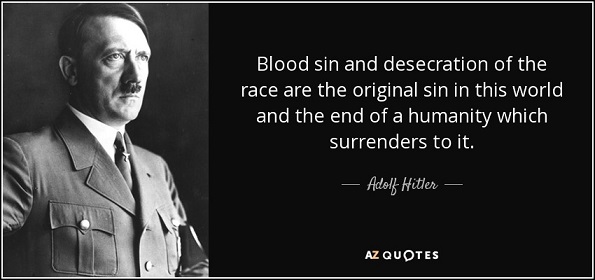On the liquidity of mountains, and cats
Sunday, November 24th, 2019[ by Charles Cameron — you might not have thought of cats as liquid, though they flow quite nicely on a decent carpet; and as for mountains — would they flow to Mohammed, or would he have to flow to them? ]
.
Somewhere I’d heard that Muhammad said that mountains moved like waves. I’d wondered which direction the Rocky Mountains might be moving in, whether they were aiming for the Pacific or the Atlantic coast, and what would happen to real estate prices and military bases in either case. I used to live in Denver..
And today I discovered the concept of the Deborah Number, defined thus:
The Deborah number (De) is a dimensionless number, often used in rheology to characterize the fluidity of materials under specific flow conditions. It quantifies the observation that given enough time even a solid-like material might flow, or a fluid-like material can act solid when it is deformed rapidly enough.
Reiner, whose paper originated the term, notes:
Deborah knew two things. First, that the mountains flow, as everything flows. But, secondly, that they flowed before the Lord, and not before man, for the simple reason that man in his short lifetime cannot see them flowing, while the time of observation of God is infinite. We may therefore well define a non-dimensional number the Deborah number..
The equation by which the Deborah Number, De, is defined as:
De = λ / T, where T is a characteristic time for the deformation process and λ is still the relaxation time.
**
The Deborah reference here is to the book of Judges chapter 5, verse 5, which Reiner reads as saying “The mountains flowed before the lord” — whereas the KJV has “The mountains melted from before the LORD” and the NIV, “he mountains quaked before the Lord”. Melting at least has a transition from solid to liquid state implied, whereas quaking doesn’t really shift mountains from their solidity, though they shake — like Quakers, perhaps?
It seems there may have been some conflation here, for Isaiah finally provides us with a text that gives mountains complete liquidity — Isaiah 64:3 in the KJV gives us “the mountains flowed down at thy presence..”
But see also the SKV renderings in the Addendum below..
**
And what of Muhammad? Shakir translates Qur’an 31.32:
And when a wave like mountains covers them they call upon Allah, being sincere to Him in obedience, but when He brings them safe to the land, some of them follow the middle course; and none denies Our signs but every perfidious, ungrateful one.
That has the waves moving, and their size resembling that of mountains, as I read it. Mohsin Khan‘s version often adds the translator’s explanations in brackets, as here:
And when a wave covers them like shades (i.e. like clouds or the mountains of sea-water), they invoke Allah, making their invocations for Him only. But when He brings them safe to land, there are among them those that stop in the middle, between (Belief and disbelief). But none denies Our Signs except every perfidious ungrateful.
Here, “mountains of sea-water” are compared with “clouds” inside the brackets, but the text itself doesn’t mention either one..
**
Maybe the mountains won’t budge. That was the opinion of John Owen, who wrote in 1643:
If the mountaine will not come to Mahomet, Mahomet will goe to the mountaine.
Bakker, Egbert J. 2005. Pointing at the Past: From Formula to Performance in Homeric Poetics. Hellenic Studies Series 12. Washington, DC: Center for Hellenic Studies devotes chapter 9 to the topic of Mohammed and the Mountain, referencing Karl Bühler’s Sprachtheorie: Die Darstellungsfunktion der Sprache (1934):
As Bühler puts it himself in reference to the well-known anecdote: either the mountain comes to Mohammed or Mohammed goes to the mountain … he adds that in real life the mountain is a lot more willing to move than in the legend, since the ease with which any given speech arena can be transformed into an imagined new reality is remarkable, and lies at the basis of any mimetic, theatrical illusion. .
Here, the mountain’s movement depends on imagination, even though Bühler seems to refer to it as moving “in real life” as well as in “any mimetic, theatrical illusion”.
Of course, the very idea concealed within the name Rheology is that of universal flow, espoused by Heraclitus:
παντα ρει : Everything Flows
**
And if everything, then cats. It was a tweet by blog-friend Adam Elkus that put me in mind of liquidity in the first place this morning:
cat physics. missed this from last year https://t.co/IWeowbo0BE
— "E1M1 – At Derp's Gate" (@Aelkus) November 24, 2019
Cat physics!
It’s an an obvious field of study once you understand the centrality of cats to the universe, and It’s appropriate enough that a cat physicist, Marc-Antoine Fardin, should have won the Ig Nobel Prize. His definition of liquid is a simple one:
A liquid is traditionally defined as a material that adapts its shape to fit a container.
He proceeds to show two examples which may fit this definition, which I’ve cropped to show you full size. First, a cat demonstrating oval form:
And here’s the rounded rectangle form, adopted by the cat from Adam‘s tweet —
**
Suggested Thinking:
>Wolfram MathWorld tells us a sausage-form filled rounded rectangle is termed a stadium. Cat stadium, or a stadium cat? Now there’s food for a football (or baseball, or rock music) thought..
_____
Addendum:
Tweets from Splymoth A. Klavrock supplied us with the SKV translation of Isaiah 64:1-3:
Oh if you would only tear the Heavens apart and descend. In your presence the mountains would melt down like when fire crackles through kindling. The fire makes oceans seethe, so your name is made known to your adversaries, and nations quake in your presence.
You did fearsome things, things we never hoped for, and in the doing of them you descended. The mountains melted down in your presence.
From all eternity no ear has heard, and no eye has seen any god but you, and the things you do for the ones who wait for you.
Klavrock had another suggestion, linking the “motion” verb to something internal, close to an “emotion”:
I think “melted” is the same verb as when the Israelites’ hearts “melt” in fear facing a strong enemy. Which is interesting.
Many thanks, SK!






